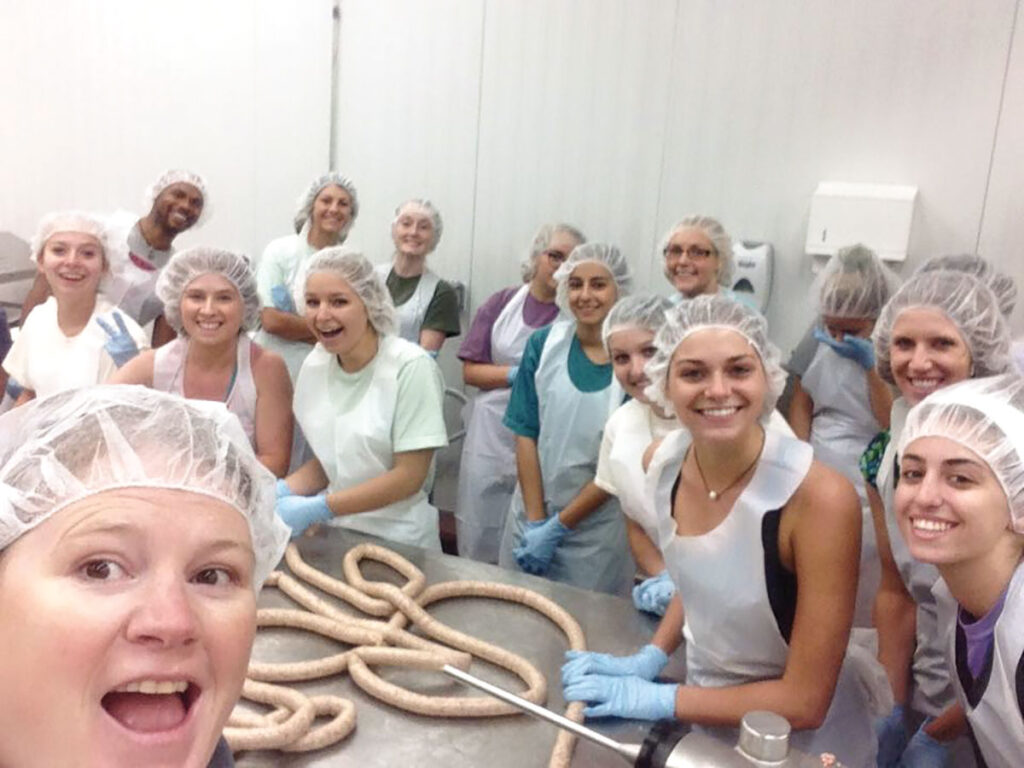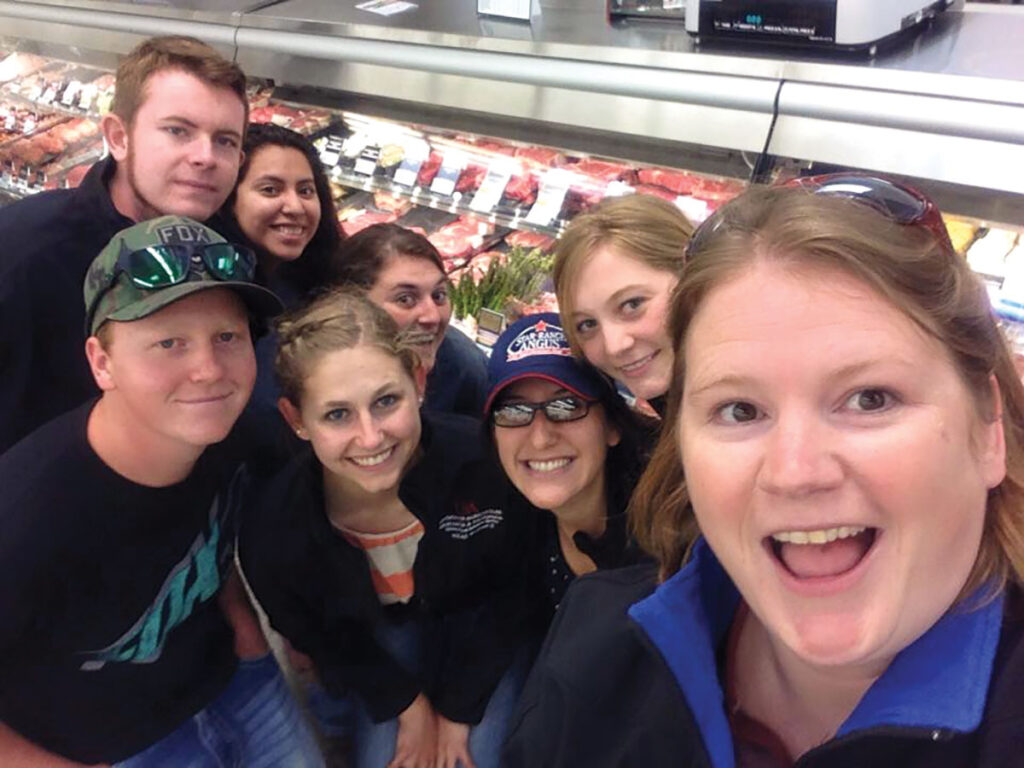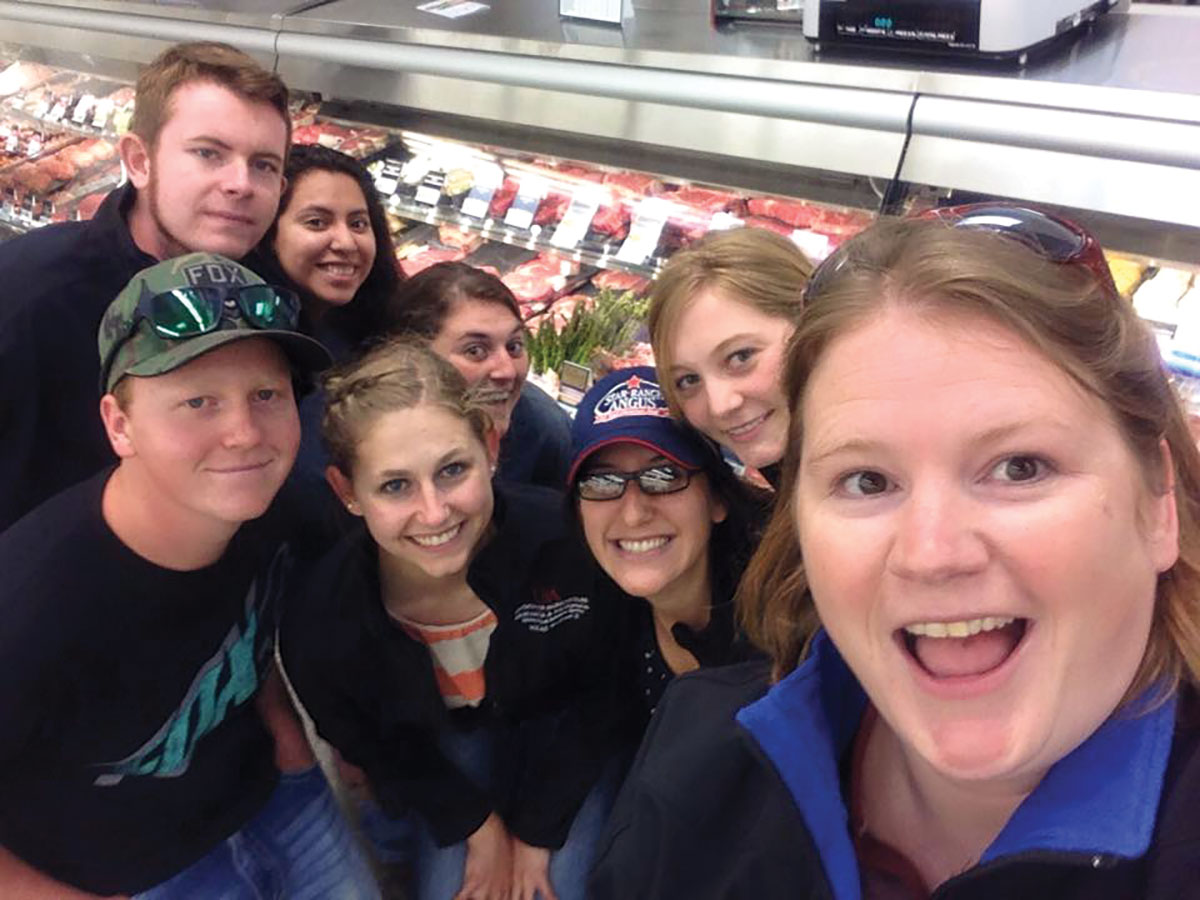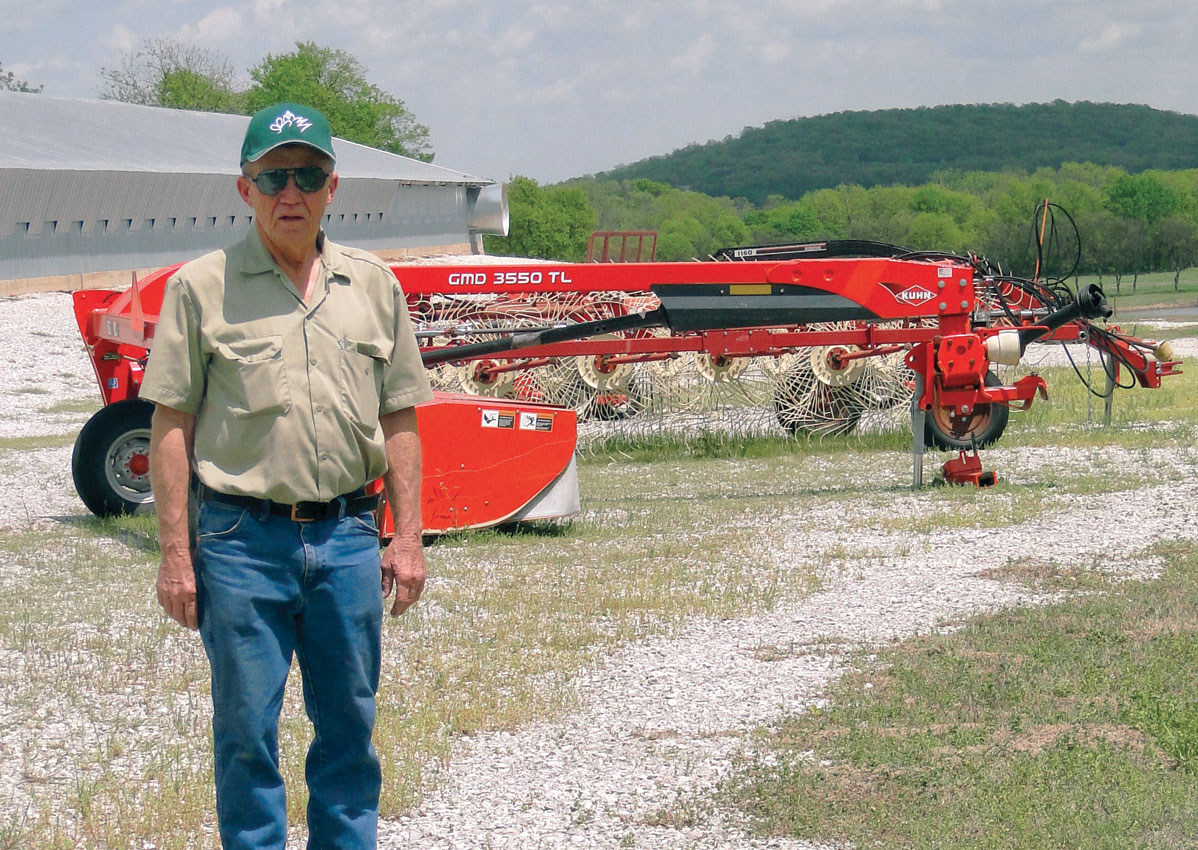
Dr. Janeal Yancey shares the science of meat production
HUNTSVILLE, ARK. – Dr. Janeal Yancey grew up on a sheep farm in Texas, and now, her two daughters, Vallie (15) and Wyn (9), are having a similar experience at Yancey Ranch, the family’s ranch.
Yancey Ranch is in Huntsville, Ark., and they produce mostly registered Hampshire sheep, focusing on the production of show lambs.
“We have about 50 ewes. They are market animals with the ability to produce meat, but our goal is to get them in the hands of the 4-H kids,” Janeal said.
She and her husband, Ed, also partner with her in-laws to have a herd of cattle in Searcy County. The herd is a variety of breeds, including Angus and Simmental, and a cross of the two. Some belong to Ed and Janeal, some his parents, and some are their daughters, Janeal explained.
While she’s busy helping manage the family ranch, it’s far from the only proverbial hat Janeal wears. She earned her doctorate in meat animal science and her master’s, from Kansas State University, where she and Ed met. She earned her bachelor’s degree at Texas Tech University. She teaches meat science at the University of Arkansas-Fayetteville.
“I teach Introduction to animal science to the freshmen joining our program in the fall,” she said. “It’s what I call a flyover class because it’s an overview of animal science.”
The students learn a little about everything related to animal science from genetics to aquaculture to specific animals such as llamas and rabbits.
“I like that my role is to get to be the intro to animal science for these kids,” Janeal said.
In the spring, she teaches Livestock Evaluation and Handling where students are taught to look at both live animals and cuts of meat to evaluate them.
“We look at live animals, and they learn about what are good ones to keep in the herd, which are best for meat products,” she said. “We also evaluate them after the harvest.”
She teaches the students to evaluate what determines quality, how to add quality and how meat quality translates to money.
Sometimes the students visit the grocery stores in the area to witness people shopping and learning about meats right there in the store. Janeal and her students can be seen on her Mom at the Meat Counter social media accounts, taking a #MeatCounterSelfie, which is a picture of herself and her students at the meat counter.
Mom at the Meat Counter is another way Janeal educates people, through her blog. She doesn’t write as much as she used to, but Janeal still uses social media to encourage and educate people about safely eating healthy, quality meat from a variety of sources.
Vallie and Wyn are about as active as their mom in agriculture. All three Yancey girls are involved with the Arkansas Junior Sheep Council, with Janeal serving as coordinator. The girls are both involved in 4-H where they show sheep, goats, and cattle, and Vallie is involved in FFA at Huntsville High School.
Janeal is quick to talk highly about another local active in educating in agriculture, Madison County Extension Agent Caramie Edwards.
“We have a phenomenal county extension agent,” Janeal said. “She makes sure that our kids have every opportunity to shine. She finds out what they’re good at and helps them (hone in on that). I could go on and on about what she does for the kids in Madison County.”
It was through her own involvement in 4-H and FFA that Janeal discovered meat judging. As a 14-year-old freshman in high school, she was asked to be a last-minute substitute on the meat judging team.

“They basically just needed a warm body,” Janeal said. Instead, she found the beginnings of a career.
“It was so cool and so straightforward,” Janeal said. “I ended up judging meat in both high school and college.”
Janeal said she’s fascinated by the amount of science that goes into meat to make it taste good and look good. Being a meat scientist means she gets to affect something that is part of our daily lives.
“We eat meat every day,” she said.
Ed and Janeal are teaching their daughters about everything from marketing to animal care and they naturally are there to supervise as needed.
“Sometimes I’m the boss, sometimes I’m the farmhand,” Janeal said with an affectionate chuckle. “We make decisions (about the farm) by committee.”
Janeal said she loves raising her family in the way they are, with being so involved in the agriculture-based activities that they are.
“It’s a lot of windshield time and a lot of hard work but it’s worth it to be able to spend this time with my kids,” she said.
Women have been involved in many aspects of agriculture for generations, but it’s only recently that they’ve been involved in the leadership and management side. While at least 30 percent of farms are women-run, you won’t see that much in the leadership side of things, Janeal said. Still, it’s better than when she was young. Even when she was in the graduate office, it was only four women and 18 men. By the time she was done, it was about 50/50 in the program.
“Women are still not on the same playing field in the industry but we’re getting there,” Janeal said. “We come at things from a different perspective. I come at it like a mom. Girls need to have that representation.”
Even when she’s at the meat counter choosing meat for her own family or educating students, she will help a mom who is trying to make quality but affordable food decisions for her own family.
“That mom walks away informed and empowered,” Janeal said. “Because I’m a mom, I know what it’s like to stand in the store and decide what’s best for my family.”







